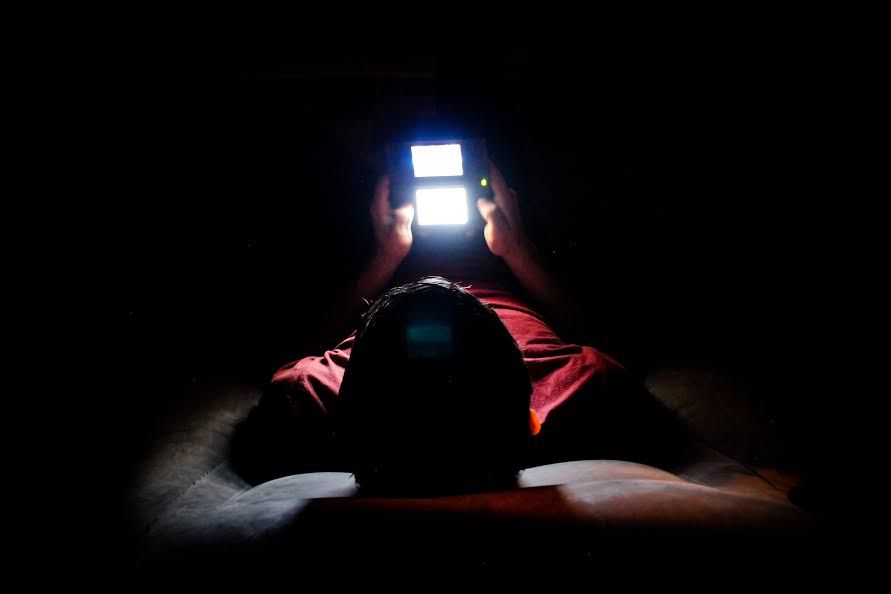Moran: Video games offer real benefits
April 11, 2016
Remember when “Pac-Man” and “Mario” were technological breakthroughs? Remember when video games were just getting started and you would go to an arcade or pizzeria to play “Street Fighter” or whatever arcade game they had? How about when people were freaking out over “Pong”? When you look at it, video games have come a long way since they were first invented.
In current culture, there’s a large misconception that video games are useless and a waste of time, when in reality there’s a lot more benefits that come from them than what meets the eye. Video games have become an essential and valuable part of our lives today.
On average, 155 million Americans play video games, and 42 percent of those Americans play regularly — three or more hours per week. The average age gamers is 35, but a quarter of those 155 million are children under 18. The gender split might not be as lopsided as some may think, as 44 percent of women and 56 percent of men make up the demographic, according to the Sales, Demographic and Usage Data (ESA).
These are just the basics of who play video games. So why are video games so popular? A lot of people say they are a waste of time or they’re useless, but these claims seem to be baseless. Video games actually have a profound effect to bring out some of the best qualities we have as humans. Optimism, creativity, social bonding and many other emotions and traits are essential to human life.
Take for example video games in education, specifically “Minecraft.” For those of you who don’t know, “Minecraft” is a video game in which you mine and build objects and structures usually using blocks. It’s like Legos, but in a video game format. “Minecraft” has started being introduced in classrooms across the world. “MinecraftEdu“ is a more classroom-friendly adaptation of the game, and more than 5,500 teachers in over 40 countries have used “MinecraftEdu” for teaching.
Why use a video game as a teaching method? While games have been used in classrooms in the past, “Minecraft” appears to be the first game that can be used universally in almost any subject from STEM to arts to foreign language.
Engineering? Build a working machine in game for a certain function. Math? Learn probability by using a random animal spawner. Geometry? Learn the area or dimensions of certain shapes. Art? Get creative and build something. Foreign language? Have students perform a creative task only speaking said language. The possibilities are endless.
Why does this work so well? Kids are given free reign to work together in a creative and educational environment. You’re giving them a task and letting them learn about the subject while using their imagination to connect with one another.
Video games are not only having a positive effect in schools but are also giving people the opportunities and experiences they are lacking in the real world. Problem solving? It’s there. Connection and social bonding? It’s there. Innovation and creativity? It’s there. Multitasking and using cognitive functions? It’s there. Video games have more benefits than people give them credit.
The American Journal of Play published an article in 2014 that presented the positive effects of video games in areas such as memory, attention and decision-making. The study touches on how games can be used to fight declining mental capacities, provide real-world skills and inspire higher cognitive function and critical thinking among other benefits.
It’s astounding when you look at the fact that people of all ages and both genders all over the world are choosing to spend time playing video games because of the effects they have on them. Jane McGonigal realized this when she wrote “Reality is Broken,” which touches on her beliefs and research as to why video games are more beneficial now than ever. In a nutshell, McGonigal believes that video games are filling genuine human needs: psychologically, cognitively, socially and emotionally.
I have to agree with this. As a gamer, I’ve never truly seen a downside of playing video games. I bond with my friends, the games help me relieve stress and relax and I’ve learned to make split-second decisions and react better because of them.
It’s plain to see that video games have numerous profound benefits on us as a society. Granted, too much playing can distract from our real-world interactions and goals, but overall, video games can help improve a vast number of areas in our lives. They play to our social needs, our creative right-brained roles, our psychological cognitive functions and many other factors in our lives. It’s time we lose the stigma of video games being useless and a waste of time.
Whether it’s playing a game with your family or connecting with others online, if we start using video games on a regular basis, I believe the effects they could have on society are endless.







